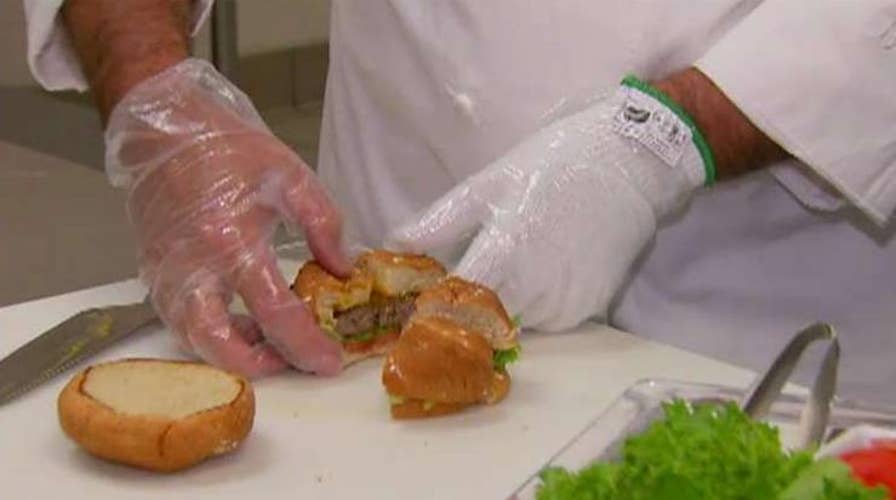Meat and sandwiches under attack by environmentalists
Scientists at the University of Manchester say they’ve found a surprising global warming culprit: sandwiches.
Can the simple act of eating a sandwich really be bad for the environment?
New research by British scientists suggests a shocking response: Depends on the sandwich.
Researchers at the University of Manchester Thursday announced the results of what they claim to be "the first ever study looking at the carbon footprint of sandwiches, both home-made and pre-packaged."
Perhaps not surprisingly, the results are bad news for meat-eaters. The study found that sandwiches containing pork meat (that's bacon, ham and sausage), cheese and prawns contained the highest carbon footprints.
The worst of the lot, the so-called "all-day breakfast" sandwich containing egg, bacon and sausage, created the same carbon dioxide emissions as driving a car 12 miles.
The study took into account the environmental impact of raising various sandwich ingredients, processing them, transporting them, packaging them and refrigerating them before purchase and consumption.
In their conclusion, the researchers recommend reducing the amount of cheese and meat in sandwiches, extending sell-by and use-by dates, and making sandwiches at home if at all possible.
The sandwich is something of a U.K. specialty. John Montagu, the 4th Earl of Sandwich, is believed to have invented the delicacy sometime in the 1700s for those occasions when he was unable to fit a meal into his busy work schedule (or gambling schedule, depending on what source you believe).
According to the British Sandwich Association (yes, there is such a thing and they even have a magazine), more than 11.5 billion sandwiches are consumed each year in the U.K. alone.

